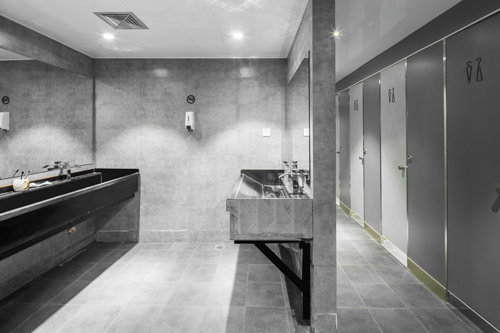What Facilities Managers Need To Know About Changes To The RPZ Valve Approved Installation Method
 By Paul Millard, technical manager at WRAS
By Paul Millard, technical manager at WRAS
RPZ valves play an important role in protecting people from the risk of contamination from plumbing systems. Unlike some backflow prevention arrangements, RPZ valves are not fit and forget. They must be tested annually by an approved tester to show they continue to protect against contaminating the water supply system.
After a comprehensive review by the water industry, it was concluded that a new Approved Installation Method (AIM) should be published, marking the start of a 12-month transition period. The AIM (Issue 2 of AIM 08-01) has been updated to ensure that commissioning and testing is carried out consistently to a suitable standard. It details the standards for commissioning and compliance testing RPZ valves, as well as ensuring test equipment is calibrated and helping improve how tests are reported.
What changes are being made?
We have now passed the half-way mark of the 12-month transition period of changes to the AIM for RPZ valves. While this is primarily an issue for contractors registered as RPZ testers, it is equally as important for facilities managers to take the necessary steps to ensure their testers are up to date and comply with the new requirements.
The last few months has been a turbulent time for all industries, plumbers and facilities managers included, so it could be tempting to overlook this training and dismiss it as unnecessary. However, if it is not completed before the end of 2020, testers risk having their approved status removed and their test reports rejected by water companies.
How does this affect facilities managers?
As a facilities manager, particularly those focused on Hard FM, a primary focus is ensuring systems are compliant. If your tester (in-house or contractor) is no longer registered as approved, they will no longer be able to verify compliance or be recognised by water companies after 7th January 2021. You may lose a supplier altogether if they are no longer approved and unable to submit test reports, as you may be relying on it as a basic contract requirement, which is often the case for some organisations.
So, what should you do next?
The new AIM will entail changes for RPZ installers, testers, property owners and facility managers alike, so all are encouraged to read the new AIM and understand the new requirements, as new installations involving RPZ valves will need to meet them.
The good news is that if your RPZ valves are already registered with the local water company and were lawfully installed, they will be unaffected, as none of the changes are retrospective. But they will need to continue to undergo regular tests for the new procedures, to ensure they remain compliant.
More than half of RPZ valve testers have not yet registered for the necessary training, so it’s important that facilities managers check whether their usual contractors have done so. If so, great news - you have peace of mind that all required training is up to date.
If not, it is important to ask them to sign up to the training soon to make sure they don’t risk losing their approved tester status. They may be concerned about potential costs, but on behalf of water companies, WRAS is offering this training free of charge to all current RPZ testers listed on its website, so it won’t leave them out of pocket.
It is also worth reiterating to your contractor that if the training isn’t completed, they will have to sit a full training course based on issue 2 – a much lengthier and costly process than that being offered. Fortunately, the training has been able to continue through the current pandemic as it is based on distance learning, with no face to face tutoring.
Further information about the new AIM can be found on the WRAS website: https://www.wras.co.uk/plumbing_professionals/rpz_testers/issue-2-update/

























































